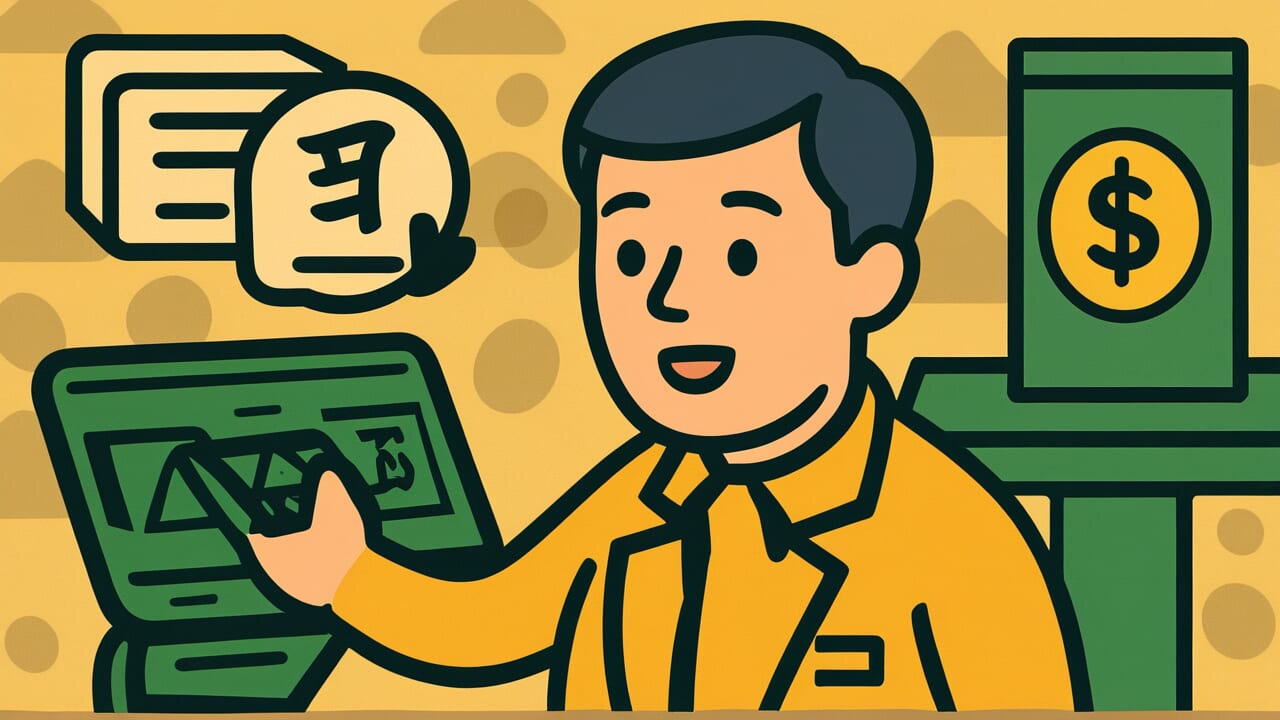How to Read “Money makes the master speak”
かねがいわせるだんな
Meaning of “Money makes the master speak”
“Money makes the master speak” is a proverb that laments and warns against how money can control people’s words and actions.
It criticizes situations where someone acts superior not because of their character or abilities, but because their wealth makes others obey them.
This proverb is used when a rich person acts arrogant or tries to control others with money.
On the surface, they may seem respected as a master. But in reality, people only follow them because of their money, not who they truly are.
Even today, we can use this saying to criticize people who gain influence through wealth. It also applies to those who try to dominate relationships with money.
This proverb teaches that a person’s true value should come from their virtue and abilities, not their money.
It contains a sharp observation: authority based on money is not real authority at all.
Origin and Etymology
The exact first appearance of this proverb in literature is unclear. However, it likely emerged during the Edo period when merchant culture flourished.
The word “danna” (master) originally came from Buddhism, where it meant someone who gives offerings.
During the Edo period, it became widely used to refer to shop owners or wealthy people. The proverb reflects an era when merchants gained power and money brought social influence.
The phrase “money makes speak” is ironic. It suggests that money, not the person’s will or character, moves their mouth.
In other words, when someone called “master” acts superior, it’s not their virtue or ability at work. Their money makes others obey them and makes them act arrogant.
This expression contains a critical view of money’s power. It reflects the sharp observation of common people who tried to distinguish between true human value and superficial authority that money brings.
Usage Examples
- あの社長は金が言わせる旦那で、本当の人望があるわけじゃないんだよ
- 寄付をしたからって偉そうにするのは金が言わせる旦那というものだ
Universal Wisdom
“Money makes the master speak” points to a timeless truth about the gap between power and essence in human society.
Everyone wants to be recognized and respected by others. However, when we rely on money to gain that recognition, a deep contradiction emerges.
Respect gained through money is not true human trust. People follow the money, not the person themselves.
This proverb has been passed down through generations because humans have always faced this temptation.
Money certainly has power. It supports our lives and makes many things possible.
But at the same time, money can distort people’s hearts and obscure genuine human relationships.
Our ancestors saw through the emptiness of authority gained through money. True respect comes from inner values like honesty, compassion, wisdom, and courage.
Money may be lost someday, but character remains. This proverb reminds us to cherish essential human values over superficial power.
When AI Hears This
This proverb brilliantly captures what economics calls the “hidden action” problem.
In relationships, when one person asks another for help, how much effort the helper puts in is hard to see from outside. The requester cannot fully monitor the executor’s effort level.
What’s interesting is that money functions as an “effort visualization device.” Behavioral economics experiments show that people work 1.5 to 2 times more efficiently when money is involved.
But this proverb suggests more than that. By offering money, the requester sends a signal: “This request is serious.” In other words, money becomes a tool for transmitting information.
Looking deeper, this proverb also contains a mechanism to prevent “adverse selection.”
Without money, the helper might judge the task unimportant and slack off. By paying money, the requester clearly communicates the priority and guides behavior in the desired direction.
This is the same principle modern companies use with performance-based pay systems. Common people in the Edo period were already practicing this economic rationality at home.
The wisdom of ordinary people contains surprising economic logic.
Lessons for Today
This proverb teaches us to develop the ability to judge people’s true value.
In modern society, we tend to judge people by external indicators. These include social media followers, income, and job titles.
But what really matters is what kind of heart they have and how they live their lives.
When others evaluate you, you want to be recognized for your essential qualities, not superficial elements.
If that’s true, why not try to see others without the filters of money and status? Make an effort to see the person themselves.
At the same time, this proverb is a warning to ourselves. If you gain economic power, check whether you’re using it to control others.
True trust comes from honesty and compassion. Money is a tool, not the foundation of human relationships.
Don’t be misled by superficial power. Choose a way of life that values human essence.
That is the unchanging message this proverb gives to those of us living in modern times.



Comments